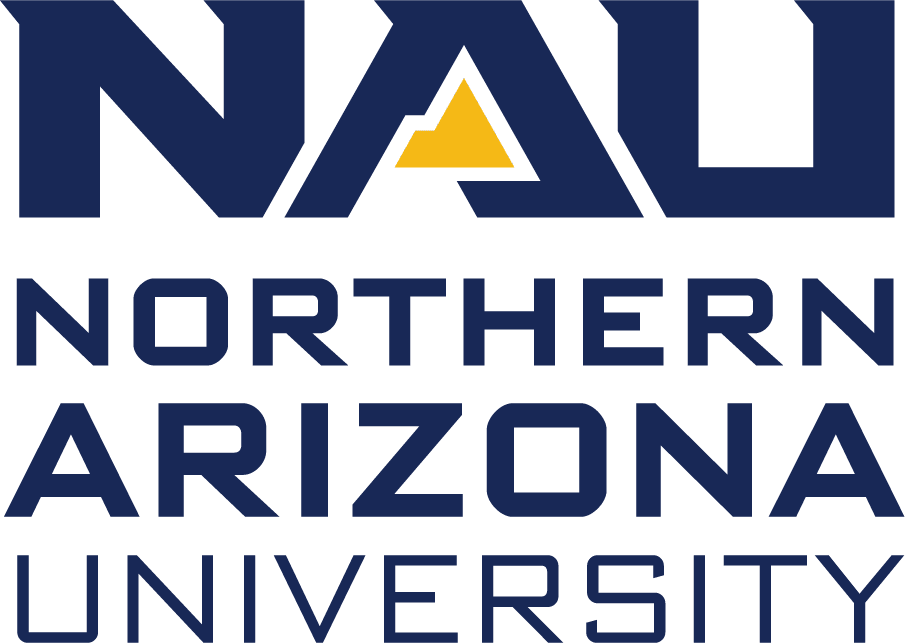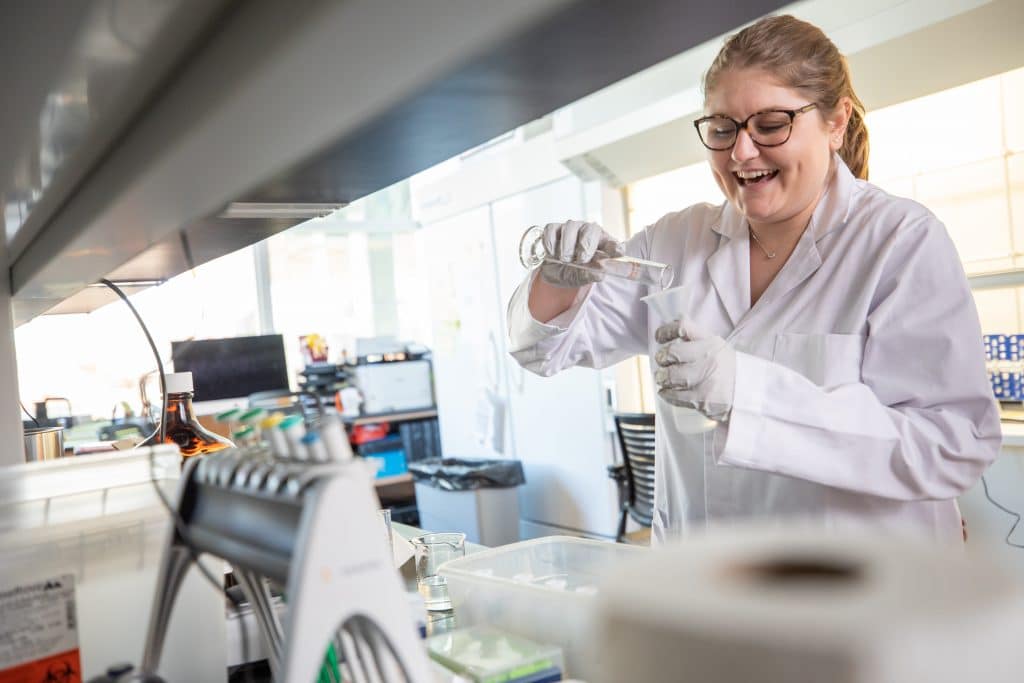Oct. 24, 2019
Amid a national opioid crisis, chemistry major Noelle Waltenburg is finding ways to help people move on from their addiction. She and other students in assistant professor of chemistry and biochemistry Naomi Lee’s lab are researching an opioid vaccine that could be administered in rehabilitation facilities.
Studies have shown that vaccines may be an effective way to blunt the effects of drugs by triggering a patient’s immune system to generate antibodies to attack opioids. When a patient ingests an opioid, these antibodies would prevent molecules of the drug from crossing the blood-brain barrier in the central nervous system, preventing the patient from getting high.
Because opioid molecules do not naturally produce an immune response, however, they need to be attached to carrier proteins. In the lab, Waltenburg attaches a molecule of an opioid such as oxycodone to a carrier protein, in this case a virus-like particle, or VLP, to generate antibodies that will allow the body to recognize the opioid and trigger an immune response.
“If that opioid comes in contact inside the body, the body knows to reject it to avoid having any of that blood-brain barrier contact, so the addict would never feel that high,” she said.
Making your own decisions and making a difference
The opportunity to make a difference on a national crisis is significant for the undergraduate researcher, both academically and personally.
“When I heard about the project that Dr. Lee was doing, I knew I really wanted to join, not just for the organic chemistry part but also because I have people in my life who have struggled with addiction,” Waltenburg said. “Being part of a project whose goal was to help these people was very important to me.”
She credits Lee’s approach to running a lab with improving her skills as a leader and a chemist. Lee, whose research focuses on novel vaccine development using VLPs and self-assembling peptides, encourages students to be responsible for decision-making, not just following a lab manual’s instructions.
“My mentor has definitely become one of the most influential people that I have met in my three years at NAU,” Waltenburg said. “This is a whole new setting, and you have to learn from your mistakes. She’s really trying to show me that it’s okay to make mistakes, to try new things. She’s always there. When I’ve messed up, even the little things, she’s like, ‘It’s OK.’ She’s helping me learn from those mistakes.”
Such confidence helps Waltenburg persevere and make a difference in the world.
“It’s good to know that I could help these people who are addicted,” she said.
Waltenburg plans on pursuing a Ph.D. in synthetic chemistry, with hopes of continuing with a career in vaccine development for those suffering from substance abuse.

Kerry Bennett
Office of the Vice President for Research



